Business
14% lending rate by CBN will lead to higher commodity price — MAN
Published
10 years agoon
By
Olu Emmanuel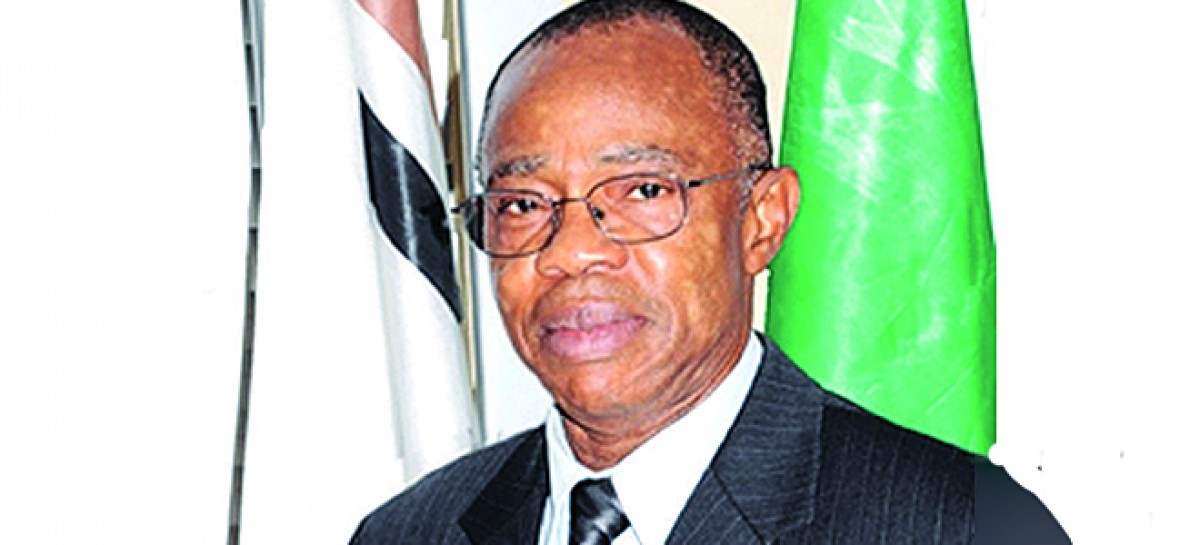
President of the Manufacturers Association of Nigeria, Frank Udemba in this interview with ANDREW OJIEZEL bears his mind on some government policies that is hampering the development of manufacturing sector in the country. Excerpts:
WITH the prevailing economic situation in the country, would you say the real sector is thriving well?
There is no way the real sector or any sector can have it easy in a depressed economy where businesses and, indeed, everything has come to a standstill. Manufacturers will produce but purchases will slow down and this in turn, build up a stockpile of unsold inventories, which would force producers to halt or, at best, cut down production. The consequences on the economy and employment are better imagined.
Constant power supply is key for the optimal performance of the manufacturing sector. How is the sector coping with the present state of electricity supply in the country, what effect does it has on the sector?
Manufacturers are managing to remain afloat. It is not easy to close down a manufacturing business. I believe you are familiar with the kind of machinery and equipment used in manufacturing industries and the value of investments pumped into it. It is, therefore, not easy to wind up. In 2015 alone, the sector spent over N59 billion on electricity self-generation.
What is your take on the issue of double taxation, and its effect on businesses in the country?
Double taxation distorts business plans and projections and cripples businesses. It is one of the greatest challenges the manufacturing sector and businesses generally are facing as one agency or the other comes to demand different taxes or levies, some of which are spurious, it also affects the pricing of local products as some of these costs are necessarily passed on to consumers. The net effect is that it could make local products more expensive and, therefore, uncompetitive globally.
Recently, the Federal Government constituted an economic team, leaving out the Organised Private Sector. How will react to this sir?
Well, one cannot force the Government on what to do. The President does not want to include the private sector in his economic team. He said that he wants to take responsibility. So be it. Government, from what we were told, would brief the private sector from time to time. It is however not the best arrangement.
Last week the CBN at its Monetary Policy Committee meeting increased lending rate from 12% to 14%, what do you think will be the implication for the economy and Nigerians?
The lending rate in Nigeria is already high and now the CBN has moved it to 14 per cent. This simply means that the cost of funds will be higher and this may translate into increase in the general price level and higher cost of production in the economy. The CBN may be trying to beat down inflation, but this increase has obvious negative consequences.
Already the country is facing serious inflation crisis, and with inflation, consumer’s purchasing power would be weaken and demands slow down.
ALSO SEE: Priority to imports killing local manufacturers in Nigeria – Erisco boss
Nigeria Customs Service has increased import duty, backdating it to July 1st. will this have any adverse effects on cost of manufacturing in the country?
The increase in import duty arising from the revised exchange rate as contained in the new foreign exchange policy did not come to me as a surprise because import duties are calculated on the basis of the value of the imported products. Consequently, the Nigeria Customs Service has pegged import duty exchange rate at N282 to a dollar with effect from July 1.
What is surprising, however, is that the revision took retrospective effect, that is, that imports which had been made before the new policy would on arrival be valued at the same rate. This is unfair because the shipment had been concluded before the new policy.
The consequences are obvious. Imports would become more expensive as clearing costs would be prohibitive. This may lead to delays in clearing of goods as importers would need more time to source for funds to clear their goods. This may consequently result in higher demurrages.
The cost of production in the manufacturing sector will rise definitely and in a situation of low purchasing power of the citizenry generally, unsold inventory would be higher, factories would be forced to slow down production and ultimately, the work force may be reduced.
It would be expected that prices of commodities would continue to rise at the markets in response to the application of the new exchange rate regime, but this may not be so because of consumers’ resistance to price increases as we have witnessed in this country in the past. In a situation where there are alternative imported products which, though inferior in quality but cheaper in price and with the penchant of Nigerians for imported products, increase in prices, commensurate to the cost of production, may be difficult.
On the positive side, the increase may compel manufacturers to further look inwards for their raw materials and this may encourage greater involvement in resource-based industrialisation. Fortunately, the Federal Government has recently adopted the policy of import substitution and resource-based industrialisation.
Many Nigerians are averse to the Federal Government decision to borrow in other to finance the 2016 budget deficit. What is your take on the matter?
There is nothing wrong with the Federal Government borrowing, most countries borrow, so it is not new. However, what is critical is what the country is going to do with the borrowed funds. If it is to fund critical sectors of the economy which would assist in meeting the developmental needs of the country, like infrastructure etc. that would enhance and grow the economy, create jobs and improve the well-being of the citizenry, then it is acceptable. Otherwise, the idea should be jettisoned.
You may like


CBN announces economic resurgence, declares $6.83bn balance of payments surplus
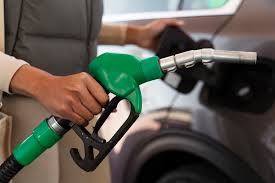

Petrol price hike has worsened our operational difficulties – MAN
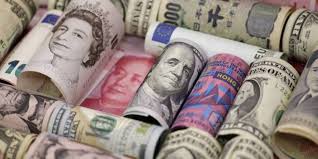

External reserves under Nigerian Presidents 1979 – 2024


Interpol places 3 Nigerians on Red Alert for stealing $6.2m from CBN


Breaking: Banks to pay diaspora remittances in Naira
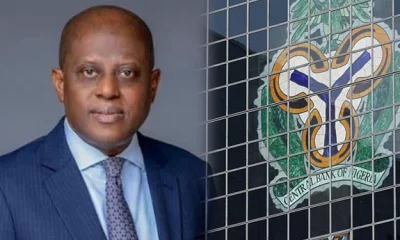

HURIWA demands DSS, EFCC to investigate CBN over Naira scarcity
Trending

 Entertainment6 days ago
Entertainment6 days agoSinger Simi faces backlash after TikToker admits to false rape allegation

 Entertainment3 days ago
Entertainment3 days agoSimi addresses resurfaced 2012 tweets amid online backlash

 Comments and Issues6 days ago
Comments and Issues6 days agoNigeria’s Declining Oil Output and Soaring Foreign Portfolio Investment Inflow

 Business7 days ago
Business7 days agoPENGASSAN warns Tinubu’s executive order on oil revenues could jeopardise 4,000 jobs

 Comments and Issues6 days ago
Comments and Issues6 days agoEx-prince Andrew’s arrest, lessons for Nigeria

 Health1 week ago
Health1 week agoNanoplastics may disrupt brain cells that control puberty, fertility, study finds
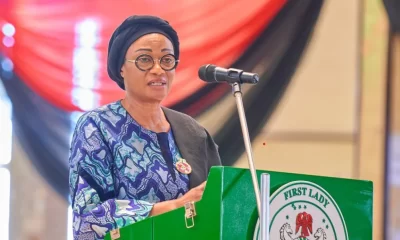
 Editorial Opinion1 week ago
Editorial Opinion1 week agoFirst Lady, Senator Oluremi Tinubu: A call to purpose beyond symbolism

 Comments and Issues6 days ago
Comments and Issues6 days agoThe Seyi Tinubu’s jellof rice, loaves of bread

